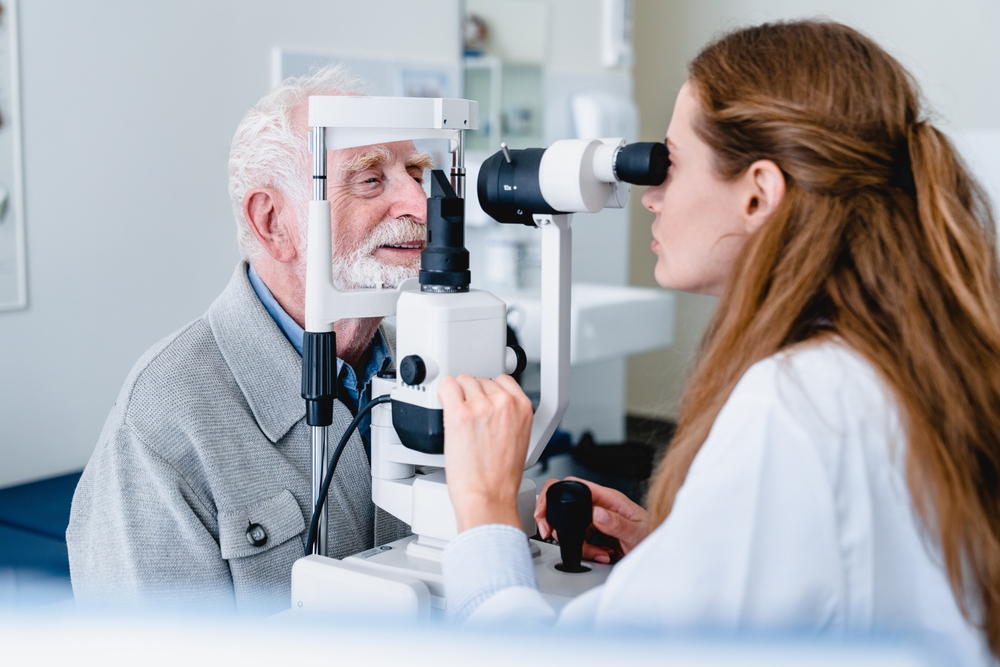What Does The Retina Do?
September 11, 2024
Most people know that the retina is a part of the eye. But you may not fully understand what the retina does.
However, your retina is one of the most essential parts of your eye; without it, you wouldn't be able to see. It's critical to understand what the retina does.
Several conditions affect your retina and even cause complete vision loss. Keep reading to discover what the retina does, why it's so important, and what conditions can damage it.
What is the Retina?
Your retina is a very thin membrane that lines the back of your eye. When light passes through your eye, it's refracted by your cornea and focused by your lens onto the retina.
Your retina contains special cells called photoreceptors that receive this light and translate it into electrical impulses sent through the optic nerve to the brain. The retina translates the light that passes into your eye into information your brain can process and understand.
Translating light into information makes the retina a vital part of the eye, as without it, your brain would have no way to get information about what you're seeing.
The Importance of the Retina
Even if all the other parts of your eye work perfectly, your brain won't know what you're seeing without the retina. If your retina doesn't work correctly, you won't be able to see, rendering you blind.
Luckily, with few exceptions, humans are born with healthy, functioning retinas. But the retina is also fragile and delicate, so it's unfortunately subject to damage from certain conditions and injury.
You should know the conditions that can affect your retina, especially if you're at high risk of developing them.
Common Retinal Conditions
Several conditions can affect the retina, but here are some of the most common ones you should be aware of:
Age-Related Macular Degeneration (AMD)
 The macula is the center of the retina. It can thin out due to macular degeneration. There are two kinds of age-related macular degeneration: dry and wet.
The macula is the center of the retina. It can thin out due to macular degeneration. There are two kinds of age-related macular degeneration: dry and wet.
Dry age-related macular degeneration occurs when yellow deposits in the macula, called drusen, build up. It often develops over a very long period.
Wet age-related macular degeneration is rarer than the dry form of the eye condition. However, it develops more quickly and occurs when blood vessels under the macula develop abnormally, swell, and leak, damaging the macula.
Diabetic Retinopathy
Diabetic retinopathy occurs as a result of diabetes. High blood sugar levels affect the blood vessels that supply oxygen to the retina, causing them to grow abnormally, swell, and leak.
These abnormally swelling and leaking blood vessels in the retina damage it as scar tissue forms. The eye condition is similar to wet age-related macular degeneration but is more common.
It's prevalent in patients with unmanaged diabetes as well as in patients who have diabetes and are pregnant and patients who have had diabetes for a long time.
Retinal Tear or Macular Hole
The gel that fills the eye, called the vitreous, shrinks as you age. As it shrinks, it can tug at the retina, causing a tear in the edge of the retina or even a hole in the macula.
This minor injury will not likely affect your vision, meaning you may only notice new floaters appear as particles enter the vitreous. However, left untreated, a macular hole or retinal tear can lead to total retina detachment.
Retinal Detachment
If a retinal tear or macular hole gets fluid under it, the retina can peel off from the back of the eye. This is a serious issue as it cuts your retina off from its blood supply.
The retina essentially dies if the retina is cut off from its blood supply, and the damage is irreversible and irreparable if it's left detached for too long. The only way to save your vision is through quick intervention and a surgical procedure to reattach the retina.
Could you have a retinal condition?
Schedule an appointment to learn more!
How to Know When You Need Retinal Care
There are a few factors that put you at higher risk for retinal conditions, including:
- Aging (being over 40)
- High blood pressure
- High cholesterol
- Diabetes, especially having unmanaged diabetes or if you've had diabetes for many years
- Trauma to the eye due to injury or a previous surgical procedure
- Being highly nearsighted
- Tobacco use
- Family history of retinal conditions
 Whether you're at an increased risk of developing retinal conditions, you should regularly schedule eye exams with your optometrist or ophthalmologist at Washington Eye Specialists. Eye exams allow us to monitor your retinal health and how healthy your eyes are.
Whether you're at an increased risk of developing retinal conditions, you should regularly schedule eye exams with your optometrist or ophthalmologist at Washington Eye Specialists. Eye exams allow us to monitor your retinal health and how healthy your eyes are.
However, if you're considered high risk for retinal conditions, you may need to schedule eye exams more frequently. Retinal conditions cause permanent damage to the retina.
Vision loss due to age-related macular degeneration and diabetic retinopathy, in particular, are irreversible and permanent. Fortunately, you can manage these eye conditions to prevent further vision loss.
Early diagnosis and treatment are critical if you want to keep your vision. Regarding retinal tears and detachments,
The appearance of new floaters and flashes can indicate a retinal tear or macular hole. The appearance of many new floaters, flashes, and a shadow over your vision can indicate a retinal detachment.
If you experience these crucial symptoms, see your optometrist or ophthalmologist immediately. You may even want to seek emergency medical care if you think you have a retinal detachment, as quick action is necessary to save your vision.
Awareness of your retina health is an integral part of maintaining good vision. Make sure you regularly schedule eye exams and discuss your retinal health with your eye doctor so you can do all you can to keep your retinas healthy!
Learn more about keeping your retinas healthy by requesting an appointment at Washington Eye Specialists in Washington, DC, now!



